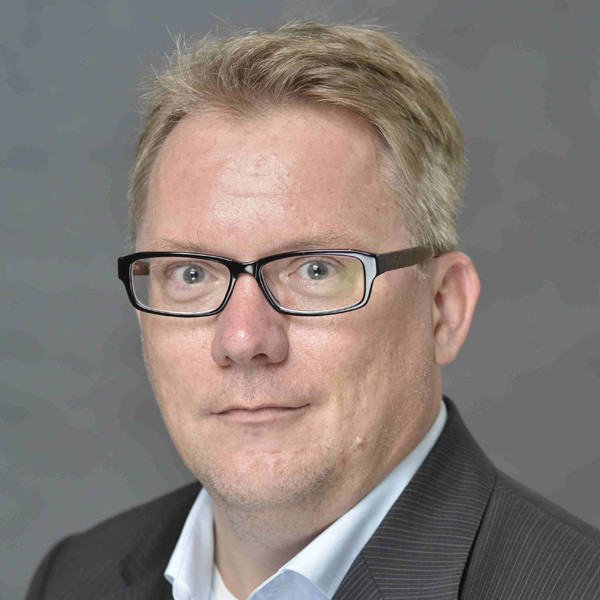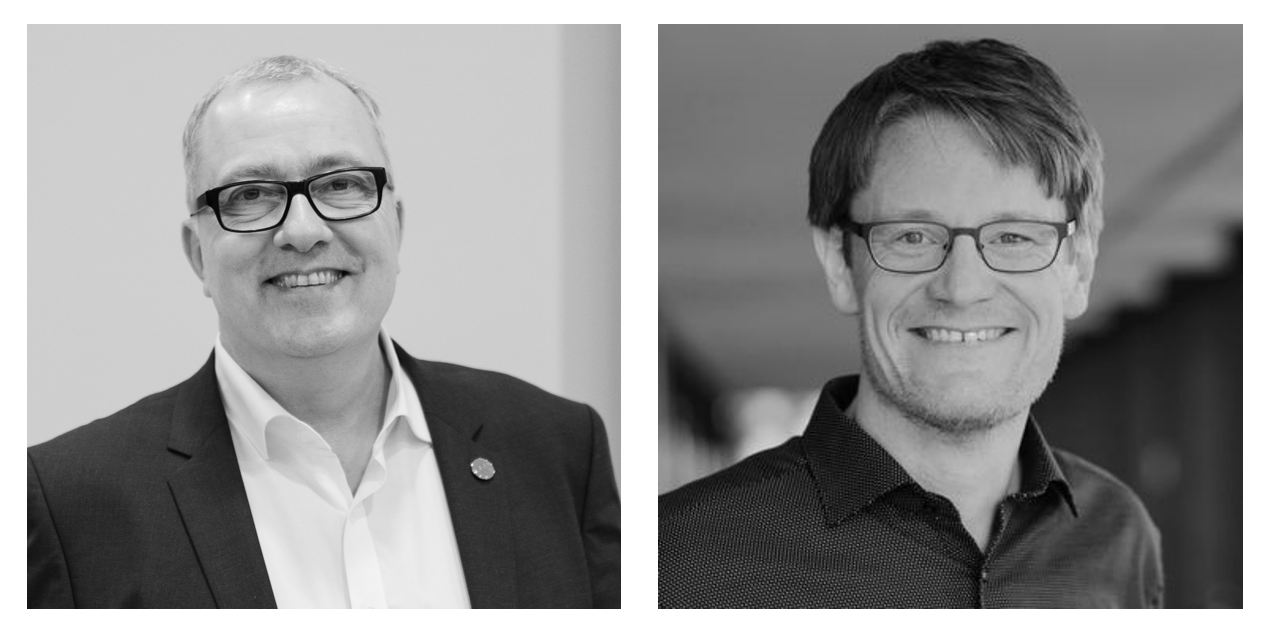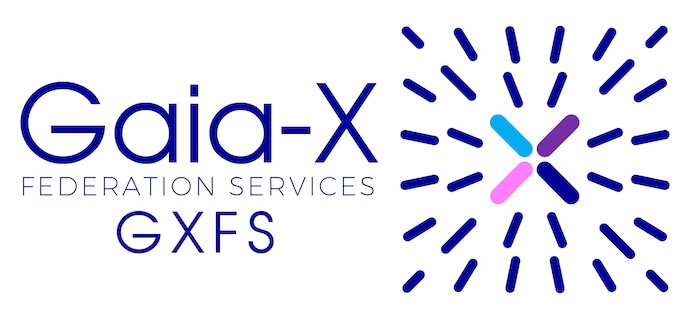
An interview with Michael Plagge, Ecosystem Development Director, Eclipse Foundation

Almost all open-source digital sovereignty projects are now with Europe’s largest open-source foundation. In future, the Eclipse Foundation will also moderate the developer community for the Gaia-X Federation Services. According to Michael Plagge, Ecosystem Development Director, the individual projects are just reaching critical mass. In an interview, the industry expert reveals how his foundation wants to give the initiatives a decisive boost.
The handover of the Gaia-X Federation Services (GXFS-DE) to the Eclipse Foundation isn’t your first contact with Gaia-X, right?
Actually, I have been involved with Gaia-X since 2020. Initially for my employer at the time, Alibaba Cloud, which became a founding member of Gaia-X AISBL, the Gaia-X umbrella organisation in Brussels. In my current role at the Eclipse Foundation, I maintain and manage the growth of our network, especially in the DACH region. This is where Gaia-X plays an important role. And also personally, the idea of digital sovereignty appeals to me.
What do you think makes digital sovereignty so relevant?
As the father of two growing children, I wonder how they will make a living in twenty years. In the USA and China, digital innovations are developing much faster than here in Europe. Our medium-sized companies, even our corporations, are too small to stand up to platform companies with more than a trillion dollars in market capitalisation. We Europeans have been successful for a hundred years; now we need new forms of collaboration to remain competitive and innovative.
You allude to the open-source approach. How should open-source technology development make the European economy fit for the future?
Open source is not the solution to all problems. But it offers a small-scale business landscape the chance to join forces. Our companies will only have sufficient resources to drive digital innovation across the board when they join forces. By developing enabling technologies, frameworks, infrastructures and ecosystems, we create a foundation on which each individual company can build.
How will the Gaia-X federation services as an open-source project change through the handover to the Eclipse Foundation?
The project is now fully open for development contributions from the community. We distinguish three aspects in open source projects: the licence – we are talking about use – as well as the contribution rules and the collaboration model. The federation services have already been published under an open-source licence. But until now, no one was allowed to contribute their own code – except for the service providers commissioned to programme the first version of the framework. Contribution rules and collaboration model were still closed to the community. With the move to the Eclipse Foundation, this is changing: Now everyone can join in!
What other advantages does the migration to the Eclipse Foundation bring?
The Gaia-X projects in our care will benefit from our governance for open source projects, which has been proven over twenty years of practice and hundreds of projects. This set of rules is based on the following three principles:
First: Openness. Anyone who is willing to abide by the governance of our foundation may join.
Secondly: Transparency. All decisions are publicly documented.
And thirdly: Neutrality. All enjoy the same rights and obligations.
The Eclipse Foundation acts as a neutral trustee. This is expressed, for example, by the fact that the Eclipse Foundation generally holds the trademark rights for project names.
How does this affect the development work in the community?
For example, we look through all the hidden dependencies in licensing issues. Likewise, our team works to ensure that all actors adhere to the governance rules. In the stress of everyday life, developers sometimes think: This little decision isn’t that important, I won’t share that on the mailing list right now. There also needs to be someone who demands openness and transparency. Our moderation team, for example, intervenes when discussions in projects are no longer objective. With our Code of Conduct, we ensure that community work… works for the long haul.
The federation services no longer run under the name GXFS, but under Eclipse XFSC. What does XFSC stand for and why the name change?
One of our principles is neutrality. This means that the Eclipse Foundation, as just mentioned, basically owns all trademark rights to its project names. Imagine you have twenty companies that want to work together, but one company claims the rights to the project name. Let’s further assume that the project is very successful. Suddenly the company says: Thank you very much, you have built up a great brand, which we would rather market ourselves in future. The trademark for the Gaia-X Federation Services, GXFS for short, is held by the umbrella organisation in Brussels. We can’t take up a project under the same name because a third party owns the trademark rights. That’s why the federation services are now called Eclipse XFSC. This stands for Cross Federation Service Components. The eco team will continue the communication activities under the name GXFS.
Apart from the XFSC, you are also in charge of other open-source projects in the context of Gaia-X and digital sovereignty. What are they?
Almost all open-source solutions that have emerged in the past two to three years on the topic of digital sovereignty are now with the Eclipse Foundation. We support the open-source offshoot of Catena-X, Tractus-X. The same applies to the Eclipse Data Space Components, which implement a specification of the International Data Spaces Association (IDSA), or the management shell of the Industrial Digital Twin Association (IDTA). And now the Gaia-X Federation Services.
What is the added value of having as many projects as possible at the Eclipse Foundation?
A unified and tested governance structure is a real added value. On the other hand, multiple governances would not be possible, i.e., if software components for one area of application were located at different foundations, That would only increase the complexity. Setting up a consistent IP policy alone usually takes one and a half to two years. Our members are saving such lengthy detours.
How can the various software projects for Gaia-X and digital sovereignty be formed into a whole?
What is missing, and what we want to offer as a new dimension, is cross-linking among the communities. We are now reaching a critical mass: The federation services in themselves do not solve any end-user problem. Neither do the Eclipse Dataspace Components. But now we have enough components together to develop total solutions for digital sovereignty. It’s going to be exciting. That will give the whole community another real boost.
How do you encourage a community to get involved?
Community means: Here, people work with people. You don’t just work through specifications and to-do lists. You have to network with people, make offers. Say goodbye to the idea that there is a magical community of 100,000 developers out there just waiting to improve your code. You only have the community that you create for yourself. That means Valuing people and their achievements. I know open-source projects that do impressive self-marketing but forget about their community. Podiums tell how great the solutions are, not how great the people who built it are. In China, it is important to give someone ‘face’. I like that approach. You can offer developers a stage at conferences or hackathons, for example. This is what we should focus on now at Gaia-X. Especially with the federation services, you have made a start with this and involved the community again and again.
How willing do you think companies will be to commit to digital sovereignty in the future, regardless of funding?
This is indeed a critical time in the project. Until now, every hour of programming was paid for. With this, the GXFS project office has built a decisive mass in the past few years. Taxpayers provided the funds and made the launch possible. From now on, companies and individual experts are required to continue the development with their own resources. Even our foundation cannot do this work for them, because we are not driven by content. We moderate, check licensing conditions, and look after aspects such as IP law. The ball is now in the court of the individual sectors and companies. Now we will start to see how important digital sovereignty really is to us. So let’s do it!
Thank you very much for the interview!
Andreas Weiss & Thomas Sprenger

Every month on LinkedIn and www.gxfs.eu
Every month, we will guide you through the world of Gaia-X on LinkedIn and www.gxfs.eu. Our analyses and interviews give background and insights into how a European initiative and its collaborators want to create an ecosystem for value creation from data.
Heading this series of articles is Andreas Weiss. As Head of Digital Business Models at eco as well as Director of EuroCloud Deutschland_eco, Andreas Weiss is well connected and familiar with the Internet and cloud industry in Europe. He brings his experience to Gaia-X Federation Services (GXFS), whose project teams are responsible for the development of Gaia-X core technologies. Led by eco, the GXFS-DE project is also funded by the German Federal Ministry of Economic Affairs and Climate Action and is in close exchange with the Gaia-X Association for Data and Cloud (AISBL). Weiss is supported on this blog by Thomas Sprenger, an author and copywriter who has been writing about the digital transformation for twenty years.
